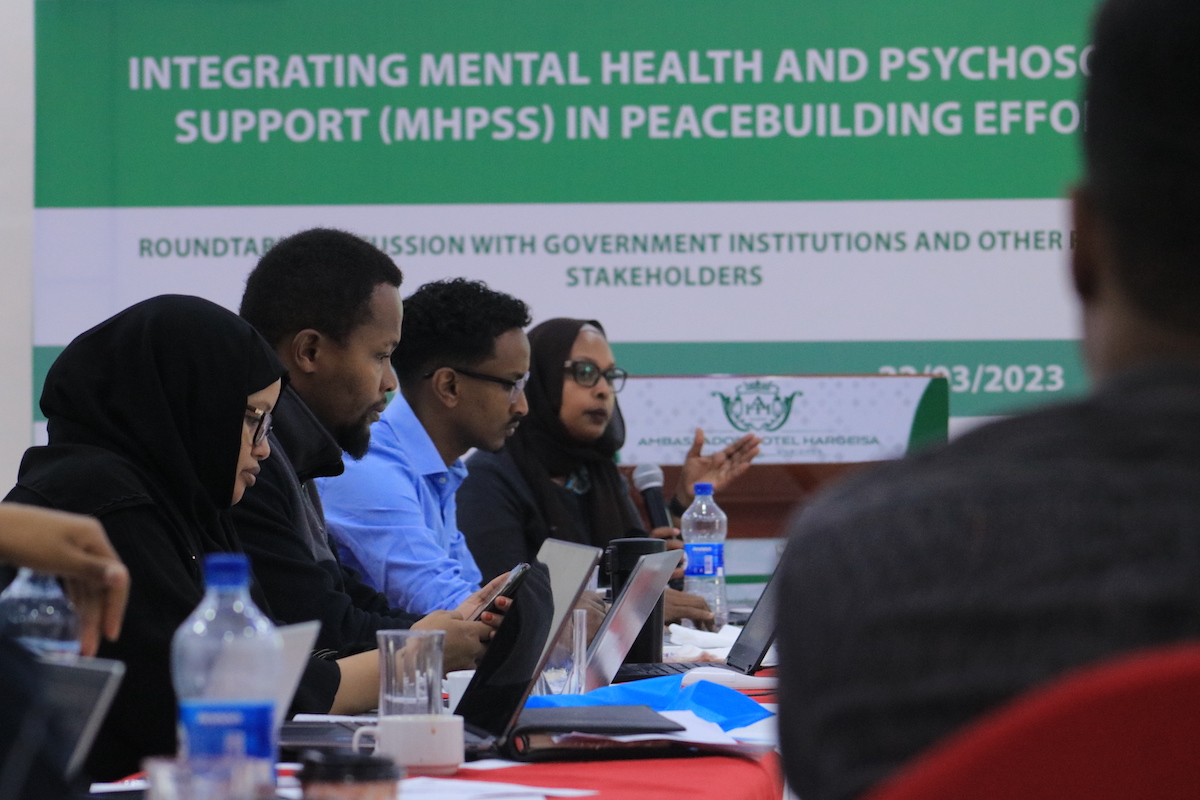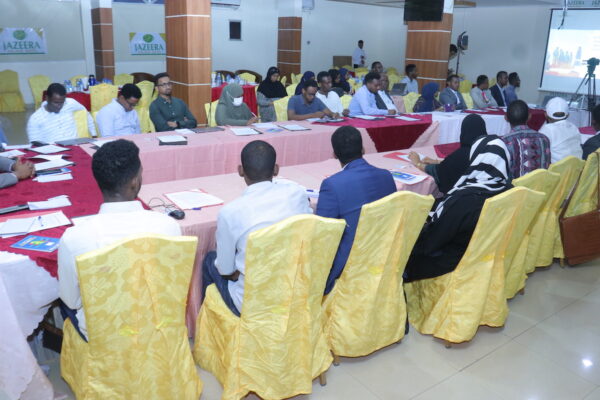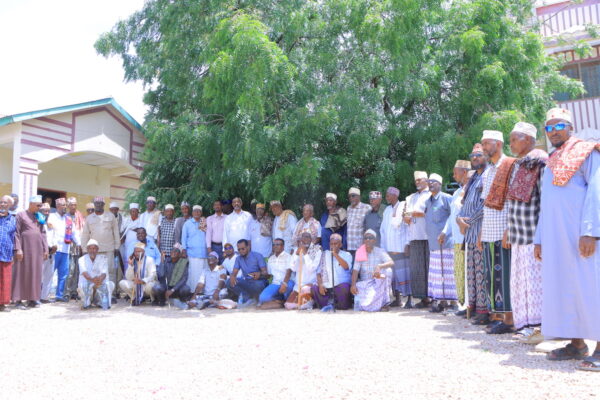Integrating mental health and psychosocial support (MHPSS) into peacebuilding efforts and transitional justice in the Somali Regions

Integrating MHPSS into peacebuilding and transitional justice efforts in Somalia is crucial for sustainable peace and human development. In conflict-affected regions like Somalia, trauma, depression, anxiety, and other mental health disorders significantly impact people’s well-being. Based on a study conducted by the World Health Organization (WHO), it is estimated that one out of every three Somalis experiences mental health challenges. Additionally, the suicide rate among males in Somalia stands at 11.5 per 100,000 individuals, which surpasses the global average. Regrettably, the availability of mental health services remains limited, with only a small number of healthcare facilities providing such support. In a country with a population of 15 million, there are merely three psychiatrists and 22 trained nurses specialising in mental health care due to a lack of funds and professional training. Somaliland published a mental health policy for 2021 to enhance mental health services, including community-based support, training, research, and legislation. However, due to funding limitations in implementing regulations, the adoption of the policy remains pending. By integrating MHPSS programmes, the diverse needs of individuals impacted by conflict and displacement can be effectively addressed.
The current Interpeace programme, made up of a consortium of diverse partners, "Social cohesion and legitimate governance through transitional justice (Miisaan)", focuses on a locally informed and owned process of transitional justice and reconciliation in the Somali context. The consortium recognises the impact of conflict on mental health and emphasises the need to integrate MHPSS into post-conflict justice and reconciliation mechanisms. To foster dialogue and engagement, round table discussions and intergenerational dialogues were organised in Galkayo, Erigaabo, Hargesia, and Mogadishu, involving community leaders, government officials, civil society organisations, traditional elders, youth, and women. The discussions with various stakeholders unearthed issues that need urgent attention to tackle mental health issues. The discussions increased the programme’s understanding of how to rebuild the mental health institutions. To address these challenges, it was agreed that it is crucial to prioritise collaboration between the government and stakeholders to allocate resources to mental health facilities and services, prioritise human rights, and provide training for medical practitioners and service providers as well as peacebuilding practitioners. Additionally, discussions explored traditional and religious practises as coping mechanisms for individuals affected by violence and conflict.

The discussions highlighted various recurring issues, including revenge killings, land disputes, camel theft, targeted terrorist killings, and administrative disputes, that affect communities. Government stakeholders who participated in the discussions, emphasised the relevance of MHPSS in addressing mental health issues and drawing lessons from other contexts that have gone through community resolution experiences.
As an outcome, a roadmap for MHPSS integration will be developed, aligning with national policies, strategies, and resources. This roadmap will aim to promote consensus and commitment among stakeholders to address mental health and psychosocial needs in post-conflict settings and achieve sustainable peace and reconciliation.
The Miisaan programme affirms that integrating MHPSS structures into post-conflict justice and reconciliation mechanisms is essential, considering the adverse impact of conflict on mental health and its hindrance to the peaceful functioning of societies. This integration will contribute to building greater awareness, advocacy, and policy development to create a better future and stronger state-society relations.

